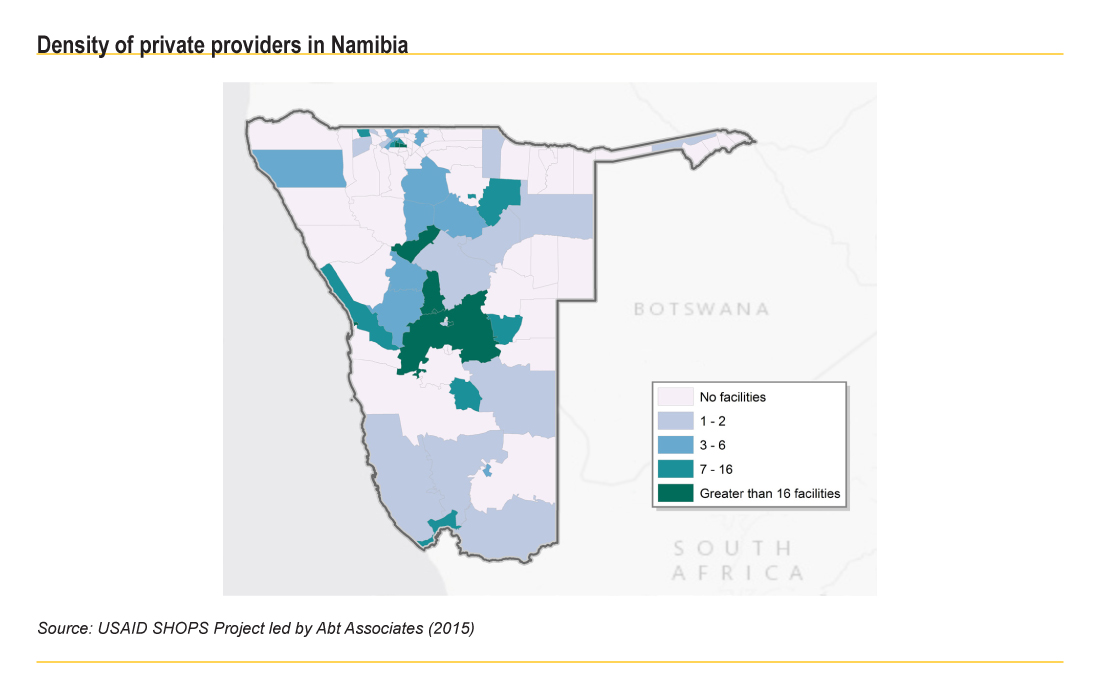Namibia Program Profile
In 2010, the Strengthening Health Outcomes through the Private Sector (SHOPS) project implemented a five-year program in Namibia funded by USAID that had three objectives: (1) Support the creation of an enabling environment for public-private partnerships; (2) Strengthen the role of private health providers to finance and provide voluntary medical male circumcision; and (3) Increase commercialization of selected NGOs to promote financial sustainability. This profile presents the goals, components, results, and the following lessons learned from the SHOPS program in Namibia:
- Creating an enabling environment for collaboration is critical to supporting a partnership with the private sector.
- Corporate-NGO pilots in Namibia demonstrate potential for commercializing NGO offerings, but additional investments in technical assistance are needed.
- Mobile clinics offer an important opportunity to expand access to testing, care, and treatment, but targeted demand creation in identified priority regions is necessary.
- Using existing systems and incentives can provide needed private sector data routinely and reliably.
- Working with private sector peer-supported networks provides opportunities to understand doctor-patient relationships and how they impact the demand for HIV services.
Contributor
SHOPS Project
Published
June 2015
Resource Types
Program Profile
Country
Namibia
Technical Area
Health Financing
Health Area
HIV
Keywords
Africa
AIDS
HIV/AIDS
male circumcision
NGO sustainability
public-private partnerships
Current Downloads
27
